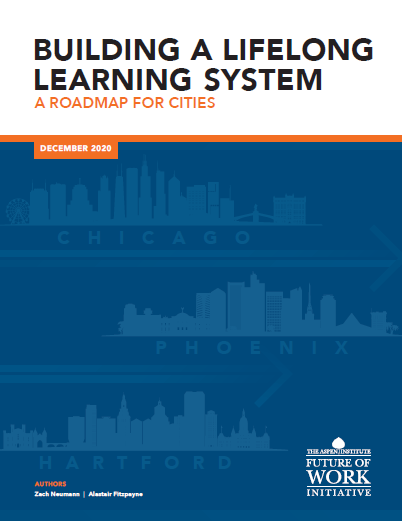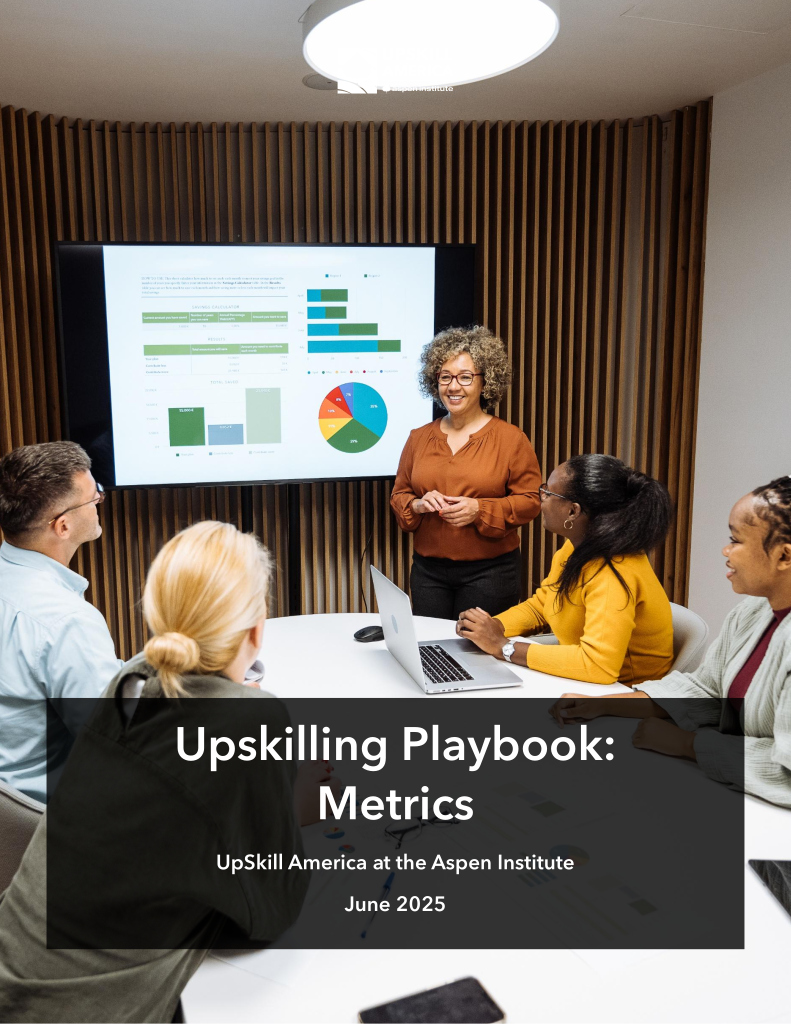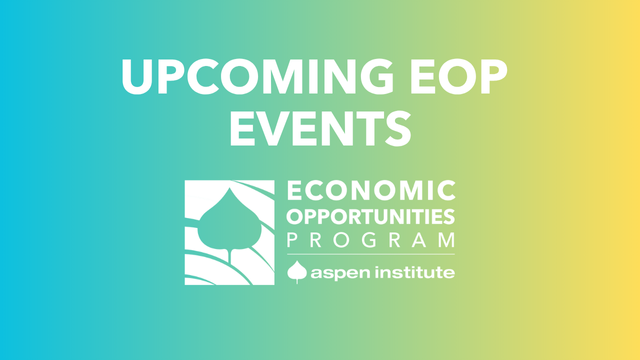As the United States grapples with COVID-19, major cities face historic challenges. While public health will continue to take precedence, cities are struggling to reopen schools safely, provide child care for working families, address racial injustice, help displaced workers reenter the workforce, and support people who have not been able to break into the job market. Adding to this list of challenges is that cities must confront these issues with declining resources due to the economic slowdown.
Long before COVID-19, lifelong learning was a critical component of building a competitive workforce. Education and training early in one’s life can no longer be relied upon to prepare workers for multiple jobs over the course of their careers. Instead, workers are increasingly faced with the necessity of becoming lifelong learners. But particularly during this unprecedented and uncertain period of change, providing workers with the tools they need to successfully navigate a changing labor market over the course of their careers is an urgent national economic imperative.
As lifelong learning becomes increasingly important in both the short- and long-term, it raises the question of how to build a system that supports it. Increasingly, U.S. cities are recognizing the importance of building equitable, accessible lifelong learning systems to help residents advance their careers. Cities have considerable assets to meet this challenge, from world-renowned educational institutions and innovative training providers to employers and nonprofit partners. In addition, labor markets are still primarily regional and the mission of education and training institutions that exist in cities is in many cases to serve these local markets.
To examine the opportunities and barriers to building city-based lifelong learning systems, the Aspen Institute Future of Work Initiative, with support from the Cognizant U.S. Foundation, held roundtable discussions in three cities—Chicago, Phoenix, and Hartford—between November 2019 and February 2020 to hear from local cross-sector stakeholders.
Using the specific examples of Chicago, Phoenix, and Hartford, this report describes the lifelong learning ecosystem as it exists, and recommends specific steps that cities can take to develop a lifelong learning system. The cities in this report were chosen based on their different geographic and demographic attributes, and the presence of unique education and training resources to support adult workers.
Specifically, this report shares the following concrete steps mayors and city leaders can take to build integrated and effective lifelong learning systems.
Create Deputy Mayor Position and Establish an Advisory Council for Lifelong Learning
- Create a Deputy Mayor for Lifelong Learning to Build and Lead a City-level Body to Integrate and Coordinate Resources
- Establish a Lifelong Learning Advisory Council
- Leverage Federal and State Resources, and Engage the Philanthropic and Employer Community to Raise Funds to Build a Lifelong Learning System
Build Jobs and Training Digital Platform and Expand Career Counseling
- Build a Digital Platform that Connects Workers with Training Providers, Employers, and Labor Market Information
- Expand Career Counseling
- Identify New Pathways to Training for Workers
- Develop Partnerships that Serve Workers and Employers
- Promote Inclusive Programs
Support a More Equitable Education and Training System
- Offer Flexible Training Options
- Promote Employer Flexibility
- Expand Access to Technology
- Provide Wraparound Services
The Future of Work Initiative is grateful to the Cognizant U.S. Foundation for providing financial support for this project and publication.



